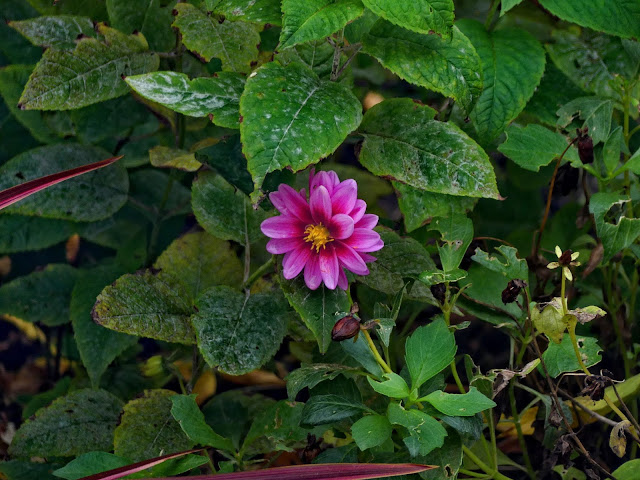 |
| Fall colors at home |
But you spare all things, because they are yours,O LORD and lover of souls,for your imperishable spirit is in all things! Wisdom 11:26-12:1The Book of Wisdom was written in the first century BCE, most likely in Alexandria. It was composed in Greek and is included in the Septuagint canon and thus included as scriptural by Roman Catholics but not Protestants. It was written to the Jews in Egypt who were experiencing persecution, often at the hands of other Jews who had succumbed to the Emperor worship imposed by Caesar Augustus. In this post-exilic community, liturgical practices are less important to righteousness than righteous living.
The sentiment of this passage can be found in all the major religious traditions. The Divine One is the source of all that is, all that has been, and all that will ever be. The Divine One is the "lover of souls" and thus is the lover of my soul. This is the reality of my existence and yet it is hard to accept and hard to keep in mind in the midst of the flurry of daily activities, even for a happily retired person like me.
I do not have to become someone other than who I am.



















